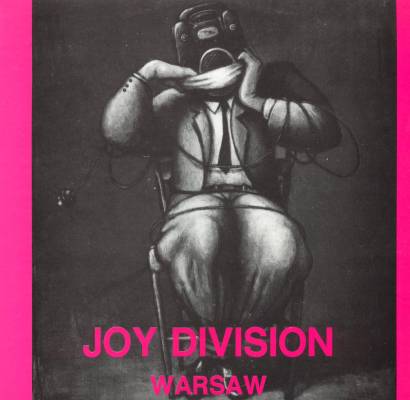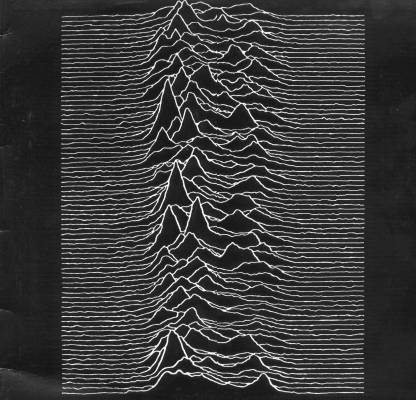
track list
01.The drawback
1.44 Availability on record:
Heart And Soul
02.
Leaders of men 2.20 Availability
on record: –
03. Walked in line 2.40 Availability on record: –
04. Failures 2.28 Availability on record: –
05. Novelty 3.49 Availability on record: –
06. No love lost 4.51 Availability on record: –
07. Transmission 4.14 Availability on record: –
08. Ice age 2.26 Availability on record: –
09. Interzone 2.09 Availability on record: Heart And Soul
10. Warsaw 2.13 Availability on record: –
11.
Shadowplay 4.10 Availability
on record:
Heart And Soul
Session details:
Date: Monday 1–Thursday 4 May 1978 / Studio: Arrow Studios – Manchester (UK)
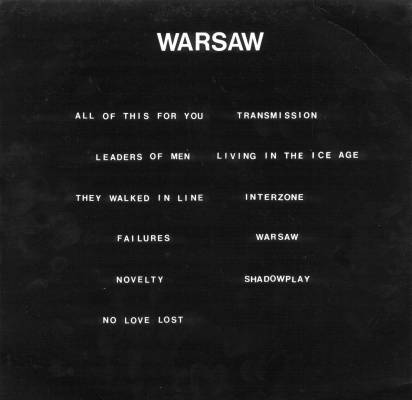
› The first bootleg LP came with a (poor sound quality) bonus 7" single:
-
Exercise One (2.35)
-
Insight (3.50)
-
She's Lost Control (4.06)
-
Transmission (3.54)
All the single tracks recorded for the 1st John Peel Session, January 31, 1979.
›On the LP track 1 is titled "All Of This For You", and on the
CD as "The Drawback". The CD contains the bonus track "As You Said"
(a.k.a. "And Then Again" or "Incubation Pt. 2"), the
the third track on the ''Komakino'' Flexi disc( Fac 28 ) which was recorded at
Brittania Row Studios, London, March 1980.
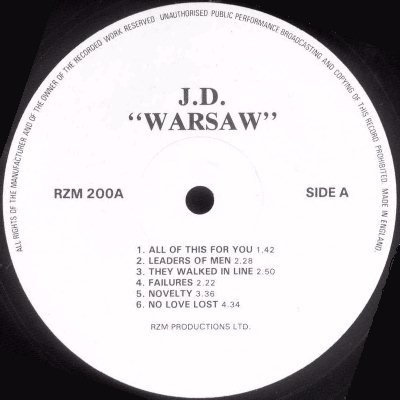
› ''On May 3.rd and 4.th Joy Division recorded material for what was expected to be their debut-album, by Mark Johnson named as "Joy Division". But John Anderson, one of the producers, put synths on the final mix in an attempt to make their raw sound more professional and advanced (compared to the common punk at the time). But the group were very unhappy when they heard the final mix, they disliked the synths and thought that it would harm their punk band reputation. The result: The album was never released!''
›WARSAW (LP+7")
RZM Productions Ltd.
Matrix number: RZM 200
Light brown cover, front and back separate inserts.
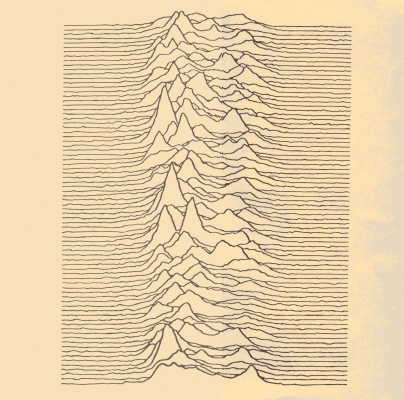
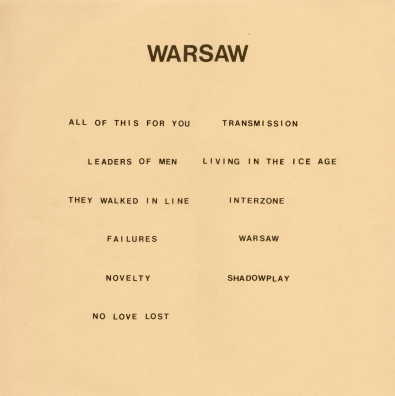
Previous to April, all dealing had been directly with Ian Curtis so the promoters met with the entire band and agreed to cut an album which would be paid for by John Anderson and Richard Searling. Rehearsals in late April resulted in at least two new songs being added to Joy Division's set. The promoters gave the band a copy of N.F. Porter's single Keep on keepin' on and told them to take the backing track, add their own lyrics, and see what they came up with – the result being Interzone, a song the band made distinctively their own. The final week of rehearsals also resulted in their writing Transmission
Joy Division went into Arrow Studios in Manchester on Monday 1 May, and spent the first two days working to record Ian Curtis's vocals properly. The eleven tracks were laid down on Wednesday and Thursday, with Robert Auger, who had set up the studio and was the session engineer, basically co-producing the album with the band. Richard Searling (who had booked the session) and John Anderson took little part in the actual recording sessions. On Thursday night (when Terry Mason, the group's manager, was on hand) they signed contracts which were backdated to Monday of that week. The contracts, which became a major object of the band's discontent, were fairly standard. The artists' (recording) contract was copied from that used by RCA in Britain, but the publishing contract was American and only provided 3 to 4% to the band – normal in the USA at that time for unknowns but, because of the punk revolution and the rise of the independent labels, considered very low in Britain. The band had not been comfortable with the meager publishing contract from almost the very start, and about two weeks after the session Bernard Sumner had taken it to Richard Boon, who suggested that Joy Division contact a solicitor he recommended and attempt to break the agreement
During the album's final mix-down on Friday, John Anderson put some synthesizer into it. He believed that the raw sound of punk would not last much longer and he wanted Joy Division to have a more professional and advanced sound than all the other same-sounding punk bands of the time. But when the group heard the mix they were very unhappy – they disliked the synths (though less than a year later they used them on Unknown Pleasures) and, wanting only guitar and drums, asked that the album be remixed. Joy Division believed that if the album were released, it would harm their punk band reputation, so John Anderson and Richard Searling decided to use it instead to set up a record deal with RCA. John Anderson took a tape to Derek Everett, head of RCA A&R with whom he had an exclusive contract, and began to persuade him to go with Joy Division. At the same time he had to work to convince the group that RCA was the only record company they had a chance with.''
›
WARSAW (LP)
Matrix number: FAC PRO 8425
Brown cardboard cover: Stamped "Warsaw" on the front.
Individually numbered (stamped) and glued on insert with
song titles and the words "NUMBERED EDITION OF 500".
It's got special Factory-like labels and the matrix number
FAC PRO 8425. No single.
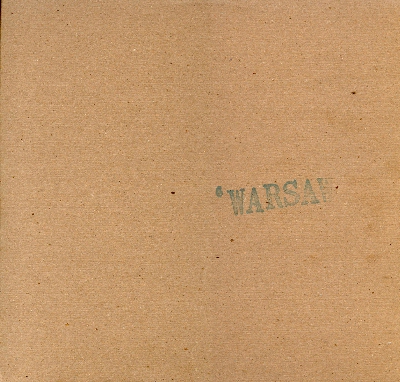
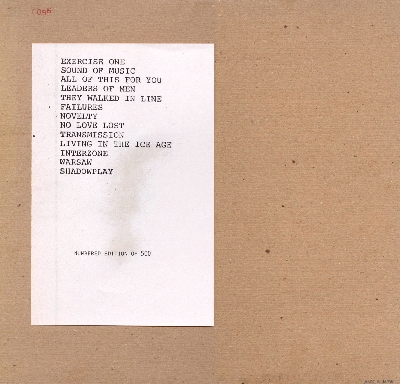
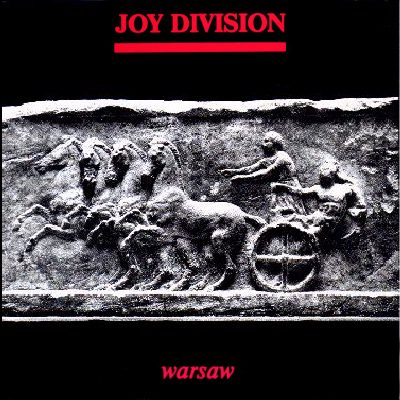
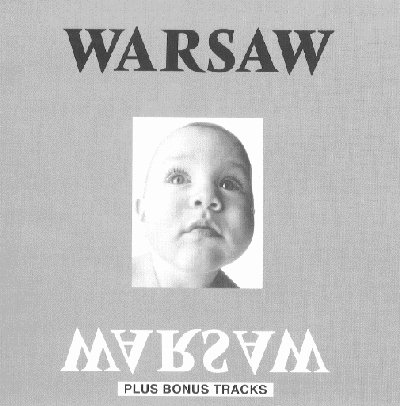
›WARSAW
(LP) Stiff Kittens Product
Matrix number: M 1 A/B
Australian LP. Single sheet paper insert sleeve.

Matrix number: RZM-200
